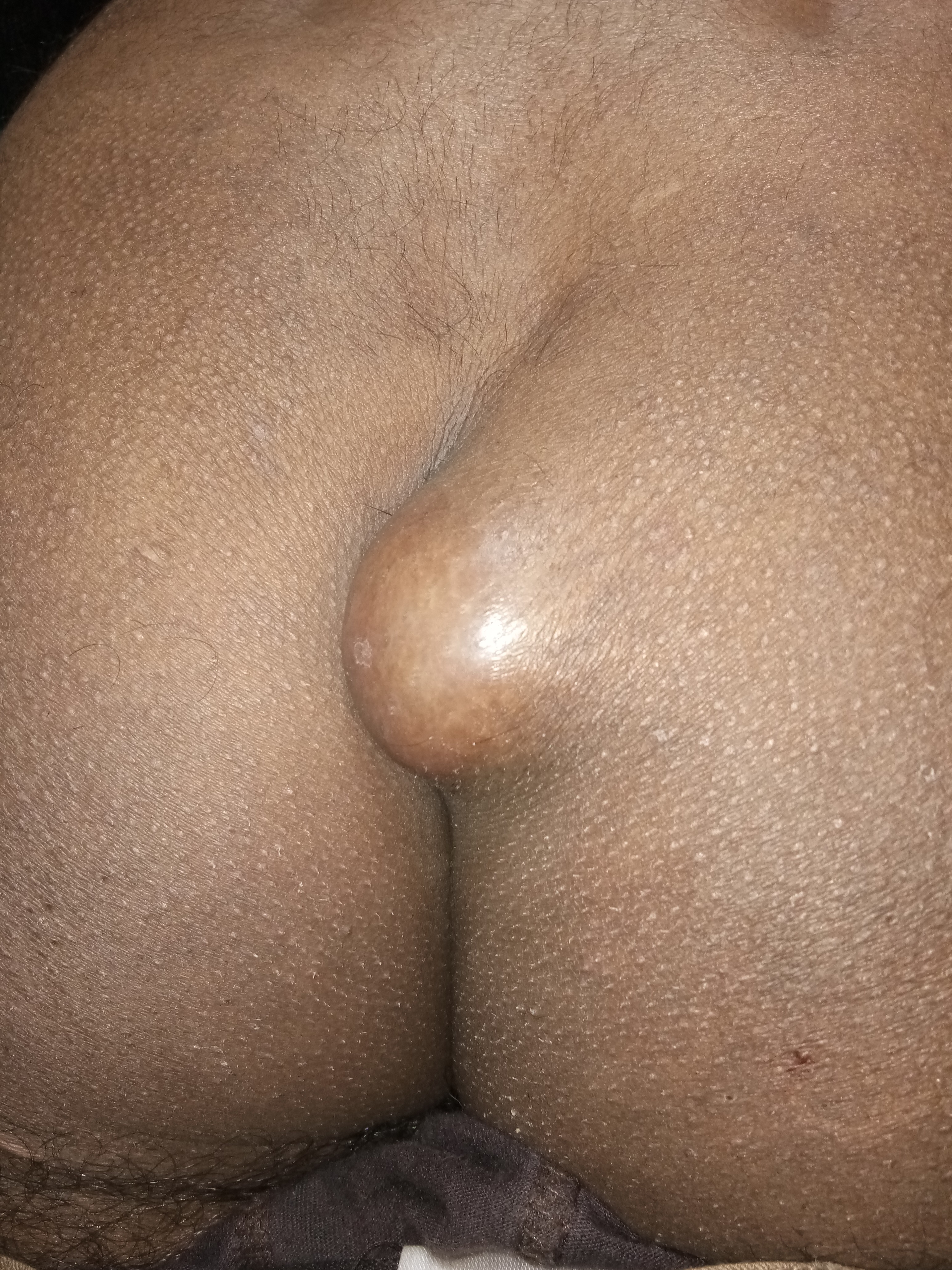Majority of patients affected by Pilonidal Sinus disease come with the complaints of pain, swelling, pus discharge and difficulty in sitting around the tail bone area. Few patients complain that after discharge of pus they feel better for few days to months and again same problem happens to them. Most of the patients are in the age group of twenty to thirty years. It is common in males and mostly affects hairy males.
Pilonidal = pilus i.e. hair, nidus i.e. nest and Sinus = a tract which is blind at one end.
Pilonidal Sinus means a tract lined by epithelium, containing hair & unhealthy granulation tissue or a sinus containing free tuft of hairs.
Common Sites
• Skin covering the sacrum & coccyx
• In the web spaces between the fingers in hair dressers.
• Usually seen in hairy persons.
Causes of Pilonidal Sinus
• Majority of pilonidal sinuses are of acquired variety.
• Rarely a congenital sinus.
• Mechanical factor theory- due to vibration and friction shedding of the hair occurs. Thus it enters in the gluteal cleft and into the opening of the sweat glands.
Features
• Pain & swelling around the tail bone area.
• Pus or bloody discharge around tailbone area
• Unexpected moisture in the tailbone area
• Discomfort with sitting on the tailbone.
Diagnosis of Pilonidal Sinus
• History of the patient.
• Examination of the patient.
• Probing of the sinus tract under local anaesthesia
• Sinogram of the tract
• MRI
Risk Factors
• Obesity.
• Family history.
• Prolonged sitting.
• Greater amount of hair.
• Not enough exercise
Management
• Conservative treatment has minimal role in curing the disease .
• Keeping in mind the recurrence of disease, we prefer to manage it with kshar sutra therapy which is done under local anaesthesia. After application of kshar sutra, patient is advised for change of sutra after every seven to ten days till patient gets recovered.
Case Report
Patient Name: Mr Rajinder Singh
Age : 28 Yrs
Address: Vill & P.O. Nawn Thatta, Sultanpur Lodhi, Distt. Kapurthala, Punjab.
O.P.D. NO: 3678/603
Job: Businessman at Beharin
Symptoms
• Pain, swelling & difficulty in sitting with pus discharge from last 4-5 yrs
• Past history of management-Surgery three times since 2012 for the same problem. Even after surgery, he was having same complaints.
On Examination
Inspection:
• Scar mark of previous surgery seen around the tail bone area.
• Opening seen around the tail bone area.
Palpation:
• Tenderness +ve around the tail bone area.
• Expression of pus from the opening
Blood Test: Normal
Diagnosis : Recurrent Pilonidal Sinus.
Procedure: Kshar Sutra application done under local anaesthesia on 2-03-2017.
Follow up: Kshar sutra changed after an interval of 7-10 days till the patient get fully recovered.







 Dec 2024
Dec 2024
 May 2024
May 2024
 September 2022
September 2022
 April 2022
April 2022
 October 2020
October 2020
 Jan 2020
Jan 2020
 June 2019
June 2019
 January-February 2019
January-February 2019
 Augest-September
Augest-September
 April 2018
April 2018
 November 2017
November 2017
 June 2017
June 2017
 November 2016
November 2016
 September 2015
September 2015
 March 2015
March 2015
 July 2014
July 2014
 January 2014
January 2014
 July2013
July2013
 March 2013
March 2013
 May 2012
May 2012
 May 2011
May 2011
 Sep 2010
Sep 2010
 Jun 2010
Jun 2010
 Feb 2010
Feb 2010
 December 2009
December 2009
 August 2009
August 2009
 June 2009
June 2009
 Feb 2009
Feb 2009
 December 2008
December 2008
 October 2008
October 2008
 March 2008
March 2008
 July 2008
July 2008
 May 2008
May 2008